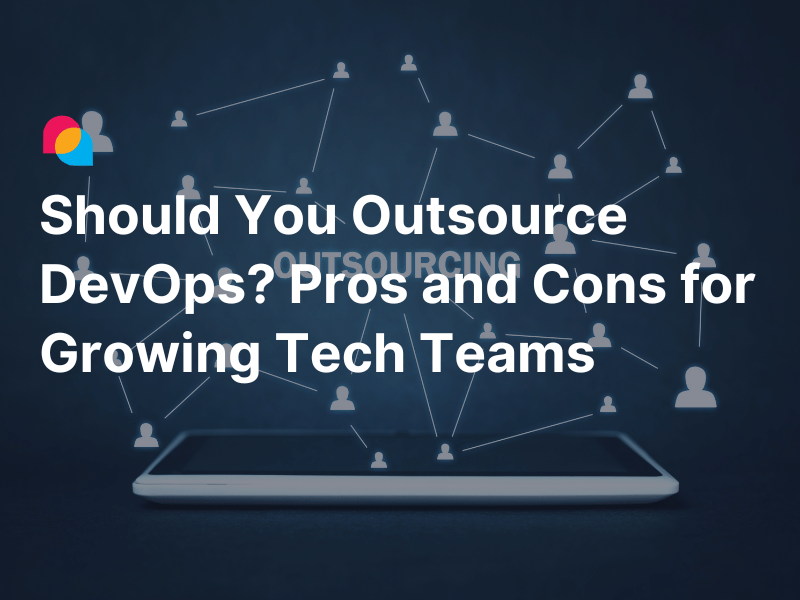Among different offshore outsourcing choices, Vietnam is proven as a dynamic and productive environment for offshore software development in the APAC region. This country is where IT buyers can look for a qualified and cost-effective talent pool. In recent years, Vietnam has been considered a new paradise for outsourcing software development:
- Vietnam ranked #1 in Global Outsourcing Destination by C&W, 2015.
- Vietnam ranked #13 in the Top 50 Digital Nation (Tholons Services Globalization COUNTRY INDEX - 2019).
- Vietnam ranked #5 in A.T. Kearney Global Services Location Index (GSLI) - 2019.
If you have a plan to leverage the tech talents in this market, below are 14 insights that could help prepare for a successful offshore development project.
High outsourcing readiness
A Vietnam IT Market Report 2020 has recently stated that Vietnam is a promising outsourcing destination by providing many Vietnam software development market statistics. According to the report, there are about 400.000 IT engineers in Vietnam. And this number is still increasing. It's estimated that nearly 50.000 IT students will graduate from 153 IT institutions adding up to the IT talent pool each year. This is not a small number, and it clearly shows how attractive IT careers are in Vietnam.
Besides, more than half of Vietnam's population is under 30. They're young, dynamic, and fast-learning, which is a significant benefit for choosing Vietnam to outsource software development. Some tech giants have chosen Vietnam for both manufacturing and R&D activities, such as Intel, Samsung, Microsoft, Fujitsu, Foxconn, Panasonic, Bosch, Alcatel-Lucent, Amdocs, Avaya, Cisco, Juniper Networks NEC, Toshiba, Hitachi, LG, HP, and so on.
Diverse technical skillsets
Vietnamese engineers’ technical skillsets are various from Backend, Frontend, and Full-stack to Database, and so on, which partly shows their ability to handle multiple projects with different requirements. The major technical skillsets can be listed as follows:
- Backend developers: C, Java, .Net, PHP, Python, NodeJS, Ruby/Ruby on Rails, Pers, Scale, and Goland
- Database: Oracle, SQL, MySQL, PostgreSQL, MongoDB, Redis
- Front end: Angular and ReactJS, HTML, CSS, Javascript, WordPress, and Magento
- Mobile: Android, iOS, Xamarin, Flutter
- Full-stack developer
Moreover, there is a wide range of other positions serving for implementing a project end-to-end such as business analysis, project manager, UI/UX designer, Agile facilitator, etc.
To help you get insight into how popular programming jobs are in Vietnam, we would like to provide you with more details with the following data:

Source: Vietnam IT Market Report 2020 - TopDev
Agile & Scrum dominance
Agile and Scrum are the most common methodologies for developers to manage their projects. More and more IT companies in Vietnam are applying this methodology in their software development management to increase team productivity and effectively work with their clients. It’s estimated that until the 2020 first quarter, over 80% of Vietnam IT companies are applying Agile in their software development. Indeed, Agile brings many specific benefits in optimizing:
- Quality of development and testing through a frequent working and reviewing process between teams to build high-quality software.
- Business value and customer satisfaction by getting customers continuously involved in the project implementation and frequently updated with the project progress. Customers can make tweaks to their expectations and desires throughout the project. Thus, it makes the collaboration between customers and developers better, ensures that deliverables match with business values, and, at the same time, brings customers higher satisfaction.
- Quality of the software by focusing on the real user demands and allowing changes in the development progress.
Agile adopters can also achieve many other benefits, like information transparency, predictable cost & timeline, predictable delivery, etc. To give you an overview of how popular each methodology is in Vietnam, let’s take a look at the table below:
| Agile | 85.4% |
| Scrum | 62.7% |
| Kanban | 35.2% |
| Pair Programming | 28.4% |
Source: Vietnam IT industry human resources insight - TopDev (Q1/2020)
Moderate English proficiency
Honestly, you could not expect the same English level in Vietnam as in Thailand, the Philippines, or Malaysia. Vietnamese engineers are good at technical as they have solid STEM education at an early age. They might also be good at English reading and writing but not speaking. A lot of developers in Vietnam work directly with clients via email and chat.
These days, many Vietnamese IT companies are trying to train their software development team's English skills in-house. They provide their employees with free English courses at different levels, which means a lot in improving their ability to meet the job requirements. If you are still concerned about the language barrier in communication with Vietnamese IT engineers, here are some tips for you to consider:
- Make sure to have a Senior/PM in your software development team. Many senior engineers and project managers who work on global projects and collaborate with distributed teams are fluent in English. They could play the role of the team leader to maintain smooth communication. This way could help take advantage of gifted engineers who don't have good English.
- Try to visualize your project as much as possible. To overcome the language barrier, you could consider visualizing your communication using email, design, sketch, wireframe, and process flow to have better communication with them.
- Ensure to give the development team a clear Software Requirement Specification (SRS) so that they can correctly understand all project aspects and requirements before starting any analysis actions.
- Provide an overview of business domain knowledge and ideas behind the business requirements. This will support them in deeply understanding what they will do, proactively solving problems, and asking the right questions.
Indirect communication
Vietnamese developers, in general, are friendly and kind but not so direct in communication. Culturally, this communication style is how the Vietnamese show their courtesy to others. However, this sometimes causes some problems in collecting their feedback, especially the negative ones, to ensure transparent communication. To deal with this, you should set fundamental rules to exchange information and communicate from the beginning. And don’t forget to get a mutual agreement of all parties involved.
One typical example is when the deadline is hard to meet, Vietnamese developers might feel guilty and don't notify you early. The solution here is to make it clear that you expect early warnings for missing deadlines and pay attention to signals or clues that they are likely to miss the deadline or not.
Hardworking
Almost all Vietnamese engineers are young and hardworking. When projects are at a peak, they are willing to work extra time to meet the deadline.
Coming from a developing country, they are eager to take their hands dirty to get more experience. Students are willing to participate in internship programs to improve their practical skills. That way, they could develop their career and improve their living standard.
Vietnamese family relationships are intimate. The young people go to work to support finance for their families, parents, and relatives. That is why they work hard and seldomly complain, even when they are under pressure. Several senior engineers also take freelance projects besides their full-time jobs. It helps to accumulate more experience, but sometimes it could affect productivity at day jobs. In this case, just make sure to clarify your requirements about working hours with them to get a mutual agreement on that.
Soft skills
Soft skills such as interpersonal skills or presentational skills can sometimes be a challenge for Vietnamese developers. They are taught everything they need to be great at technical skills but rarely given any tuition in these soft skills. To help them break out of their comfort zone, many IT companies provide employees with mentor-mentee relationships, which give them opportunities to communicate with other people, raise their voices, and get advice for their personal development. Besides, a wide range of internal and external workshops give developers chances to speak in public, share their experiences, improve their presentation skills, and learn from others.
Punctuality
Vietnamese employees are quite punctual. However, around 5 minutes late is also normally acceptable in Vietnamese working culture. They take it seriously in business meetings, so sometimes they look tense rather than relaxing.
Shy but kind
Influenced by Asia culture, Vietnamese, in general, are shy. People who use most of the time working with computers like engineers are even shyer. There are many team-building activities in tech companies, such as company trips, monthly team-building parties, project-released parties, birthday celebrations, year-end parties, etc. These opportunities are to make people more open and active.
As far as we’re concerned, there are rare political relationships in this IT industry. Vietnamese engineers tend to be very supportive, so their teamwork is quite good. Generally, there is no gender or racism discrimination in Vietnam or the IT industry.
However, when a shy character combined with insufficient verbal English, they are afraid of raising questions and sometimes work on assumptions. Thus, it's essential to break down the tasks and continuously follow up on the progress to know whether they understand the requirements and what to do.
Annual leaves
Under Vietnam Labor Law, employees have at least 12 days of annual leave. Some IT companies even give their developers sick leave, and Christmas leave.
National holidays
Like other countries, Vietnam has many National Holidays, which can be listed as follows: New Year’s Day (1st Jan), Hung Kings Commemoration Day (10th March - Lunar Calendar), Reunification Day (30th April), Labor Day (1st May), National Day (2nd September), and Tet Holiday.
The longest one is Tet Holiday - Lunar New Year, with about ten days off among these holidays. It would be best if you make your Vietnamese outsourcing partner give you advance notice of this vacation to adjust your working plan accordingly.
Nap after lunchtime
Taking a nap after lunchtime is the cultural norm in Vietnam. It's not surprising to see the office lights off, and people are sleeping at their desks. They take this practice to recover energy for the afternoon. That's why the typical break time at noon is around 1.5 hours.
Socializing culture
The society living of Vietnamese people is different from place to place. There are some main points that you can pay attention to:
- Vietnamese names follow the order: Last name - Middle name - First Name, and they use the First Name to call each other.
- Vietnamese people tend to build trust and intimacy by eating out together outside of work. If you have a Vietnam offshore software development team, you would probably have the chance to sing karaoke and go out for lunch/dinner. That way, they show their hospitality and respect to their guests. And on the opposite, they might expect the same thing.
- They don't take handshake culture seriously. A loose handshake does not mean that they are not confident or impolite. It’s just that they don't do it frequently and don't know how to do it properly.
- They can have many conversations about sport, food, travel, music, and movies, but not political topics.
Compensation and benefits
Vietnamese engineers tend to negotiate the "net salary" while other countries prefer to use "gross salary.” Moreover, at the end of the year, it's common to pay employees a bonus for Lunar New Year, which is a 13th-month salary, apart from their salary and other performance-based bonuses. Typically, it’s from one to several months’ salaries.
Conclusion
It is no exaggeration to say that Vietnam has seen a huge change in its development, especially in the IT industry. There may be disadvantages in English communication and soft skill development, but Vietnamese developers, with their great work ethic and strong technical skills, are constantly striving to improve themselves day by day. This somehow explains why Vietnam is rapidly becoming a potential destination for outsourcing software development.
In this short article, we cannot tell you everything about the outsourcing software development culture in Viet Nam. Still, hopefully, we did give you some insights that can help you make better decisions in choosing a country for your software development. If you’re interested in more sharings about Vietnam software development outsourcing, subscribe now.
Thank you for reading!
References:
- Topdev, Vietnam IT industry human resources insight, www.slideshare.net, Q1, 2020.
- Nhu Truong, Vietnam IT Market Report 2020, www.topdev.vn, 2020.
- Benefits and Challenges of Agile Development, www.blueprintsys.com.
- Most 5 Valuable Benefits of Agile Methodology, www.denysys.com.





